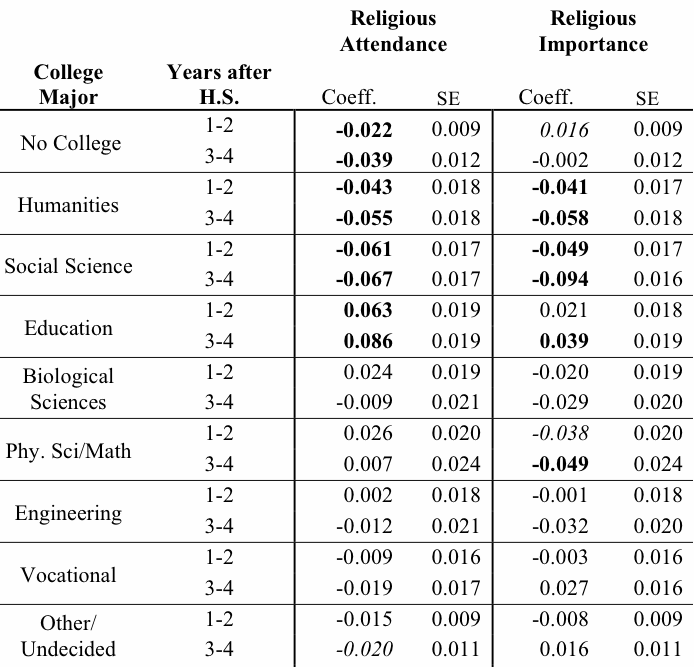Social Science Cuts Religiosity
If reducing interest in religion is a sign of rationality, then social sciences rule!
A new NBER paper compares college majors for their effect on student religiosity. Majoring in biological sciences, engineering, or vocational areas all increase religiosity about the same relative to not going to college. Majoring in education encourages religion even more, while majoring in physical science has about the same effect as no college. Majoring in humanities reduces religiosity relative to no college, and majoring in social science reduces it the most.
Here is a part of the paper’s main table:

Bold params are significant at 5%. They control for year, region, gender, parent education, type of religion, and initial religiosity.
Added: Studying physics in college helped me become atheist because, taken as a complete account, physics seemed to leave no room for spirits to regularly intervene in human affairs. Most students, however, do not take physics as such a complete account. Social sciences and humanities do not usually suggest they offer complete accounts, but they do offer more direct stories of how human affairs become arranged, accounts that compete more directly with divine intervention stories. I suspect that this competing explanation effect is the reason social sciences and humanities reduce religiosity, and that the social science effect is stronger because its accounts leave fewer holes for divine influence than do humanities’ accounts.


For that reason plenty of superstars bring Replicas LV purses, as an example Jennifer Lopez, Jessica Simpson and the like sometimes one tend not to genuinely notice the superstar though the Gucci these folks wear the ensemble.?
It's ambiguous in the post, but I'm reading this to say that the change in religiosity after starting college is being reported. But this is very sensitive to initial conditions.
In an absurd extreme case, say major 1 starts out at 0% religiosity, and major 2 at 100%, then they each only have one way to go. A "random-drift model would be biased, showing up. This sensitivity to initial conditions would still exist for intermediate values not equal to 50% (or maybe it's whatever the equilibrium value is, which presumably is higher than 50%).